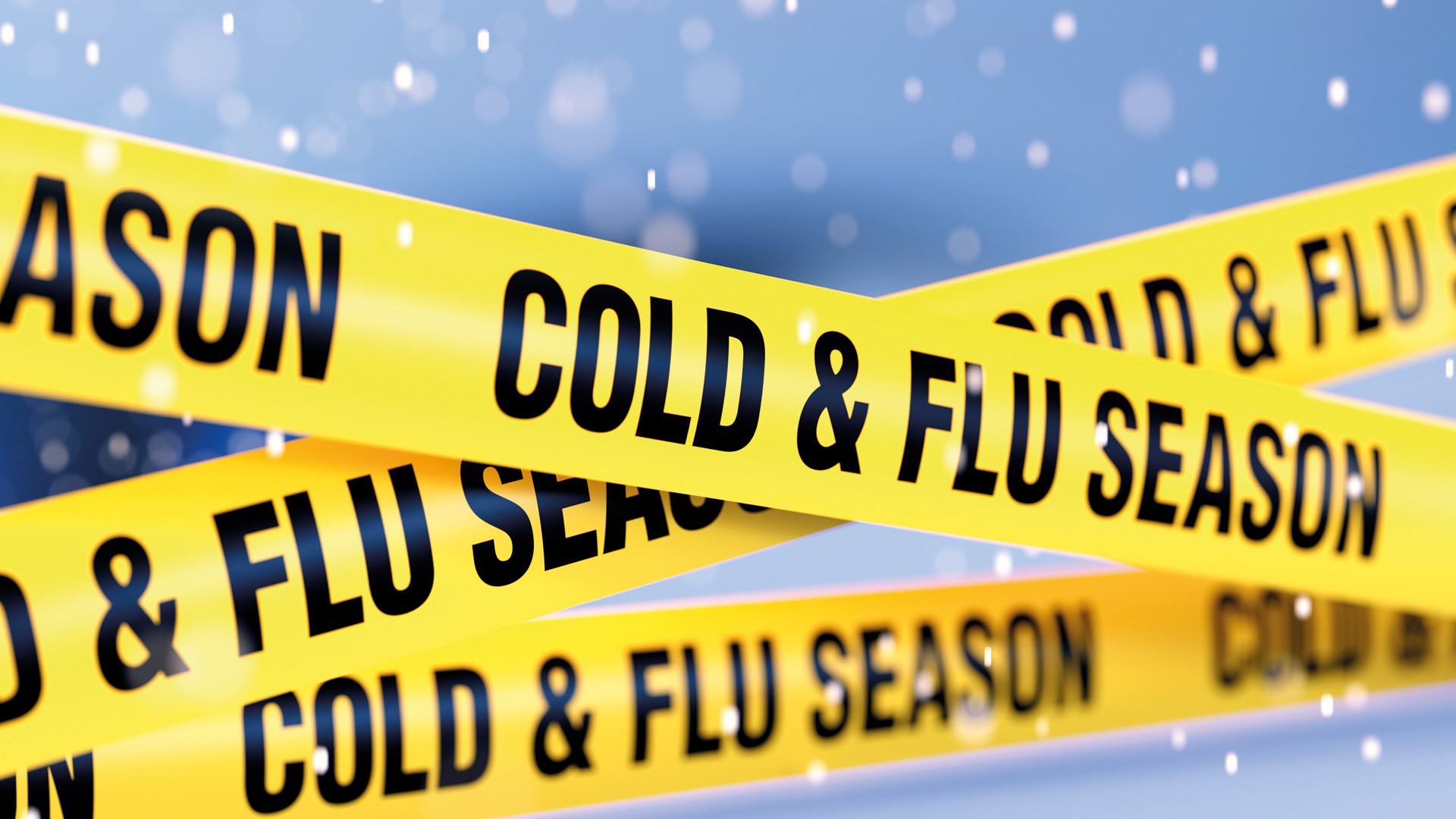In Clinical
Let’s get clinical. Follow the links below to find out more about the latest clinical insight in community pharmacy.Bookmark
With Covid boosters rolling out and a new national protocol enabling even more pharmacy staff to administer flu jabs this year, it’s all hands to the pump for the coming winter season
Learning objectives
After reading this feature you will be able to:
- Identify which groups of people are eligible for a flu jab this year
- Understand the national protocol for administering inactivated flu vaccines
- Describe what is involved in phase 3 of the Covid-19 vaccination programme.
Key facts
- The Department of Health and Social Care has forecasted up to 50 per cent more cases of flu than usual this winter
- More than 35 million people are included in the eligibility criteria for this year's flu vaccination programme in England
- Pharmacists providing phase 3 Covid jabs should be aware of their liabilities regarding indemnity insurance.
Lowered immunity
The Government has warned of a lower level of population immunity against seasonal flu this winter because of mask-wearing, physical and social distancing, and restricted international travel due to the Covid-19 pandemic.
The risk of co-circulation of seasonal flu (and other respiratory viruses) with Covid-19 has also been highlighted with forecasts of up to 50 per cent more cases of flu than usual this year. As a result, the race is on to provide the largest ever flu vaccination programme alongside the booster scheme for Covid-19 vaccines.
More than 35 million people are included in the eligibility criteria for this year’s flu vaccination programme for England, with community pharmacies ready to take on an even greater share than before.
Last year community pharmacy teams administered over 2.6 million flu vaccinations under the national flu vaccination service, far surpassing the 1.7 million they delivered in 2019/20. This year the Government is aiming to vaccinate:
- A minimum of 85 per cent of those who are aged 65 years and older
- A minimum of 75 per cent in the under-65-year clinical risk groups, pregnant women and those aged 50-64 years
- At least 70 per cent of children.
Consumers less confident
Consumer attitudes towards everyday cough and cold symptoms have changed considerably over the last 18 months, according to new European research commissioned by Johnson & Johnson Consumer Health, indicating that consumer behaviour could be different this cough and cold season.
The survey suggests that close to half of UK consumers (44 per cent) now feel more hesitant about displaying cough and cold symptoms in public. Over a quarter (27 per cent) also feel less confident about self-diagnosing and differentiating between the symptoms of coughs and colds and other viruses – presenting an opportunity for pharmacists to bridge the gap in consumers’ knowledge and help them understand the various treatment pathways available for cough and cold sufferers.
According to the research, nearly one third (32 per cent) of UK consumers are more likely to prioritise getting the flu vaccine ahead of winter than they were pre-pandemic. However, “the results clearly point to a lack of confidence amongst consumers in understanding their cough and cold symptoms and the most suitable and effective treatment pathway”, says Mike Morris, associate director, medical affairs, at J&J.
The company has launched a webinar ‘How pharmacists can prepare for the cough and cold season’. It explores what the results of the survey mean for the upcoming cough and cold season and how pharmacists can prepare with the help of J&J’s Compass.
Patient eligibility
Last year the NHS flu vaccination programme was extended to include 50-64 year-olds – this is a change that will continue this year. As a temporary measure, the programme has also been extended to four additional cohorts in secondary school, so that all children from years seven to 11 will be offered vaccination in a bid to reduce flu transmission in this age group.
Other patient groups eligible for a NHS flu vaccine this season are:
- Those aged six months to under 50 years in clinical risk groups
- Pregnant women
- Those aged 50 years and over
- Those in long-stay residential care homes
- Carers
- Close contacts of immunocompromised individuals.
The recommended vaccines are:
- For those aged 65 years and over: the adjuvanted quadrivalent influenza vaccine (aQIV), with the cell-based quadrivalent influenza vaccine (QIVc) or the recombinant quadrivalent influenza vaccine (QIVr) offered if the aQIV is unavailable
- For under-65s (including those at risk, pregnant women and the 50-64 year-old cohort): QIVc or QIVr. As an alternative, if these are not available, the egg-grown quadrivalent influenza vaccine (QIVe) should be considered for use.
It is worth noting that although the protocol allows provision of flu vaccines to those aged from six months to under 50 years in a clinical risk group, the service specification for community pharmacy is for the provision of a flu jab to patients aged 18 years and older who are specified in Annex A of the legal framework.
All frontline health and social care workers are also expected to have a flu vaccination to protect those they care for. For pharmacy teams, including locums, this free vaccination offer was only made after the NHS reversed its original position and agreed to provide free flu jabs – a move described as a victory for common sense by Thorrun Govind, chair of the RPS English Pharmacy Board. Community pharmacy and general practice pharmacy teams in Scotland had already been included in the NHS Scotland flu vaccination programme.
The legalities of the flu jab
This year’s flu vaccination service will run until March 31, 2022. The vaccine is being administered by appropriately trained, registered healthcare professionals, authorised under the NHSE&I national PGD or any relevant emergency national immunisation protocol.
Practitioners who can legally supply and administer vaccines under the PGD are listed in the ‘qualifications and professional registration’ section.
The PGD allows pharmacy contractors to use other healthcare professions listed in the direction (e.g. nurses) to provide the service under the supervision of a pharmacist trained in vaccinations (including a clear understanding of this service), but it cannot be used to authorise administration of flu vaccines under any other NHS or private service.
Public Health England also signed off a national protocol for administering inactivated influenza vaccine as part of the service, which means, for example, that pharmacy technicians can now prepare and administer the jab (but not ask for consent).
While a national protocol has already been used by many pharmacies participating in the Covid-19 vaccination programme, this update enables contractors – if they wish – to make use of the skill mix flexibilities allowed under the protocol to consider providing flu vaccinations via this legal framework as an alternative to the PGD.
Challenges ahead
There are some challenges still to be faced when it comes to implementing the flu vaccination campaign, including vaccine hesitancy, which really came to the fore during the pandemic.
“Despite the severity of influenza and the availability of safe vaccines, low influenza vaccine uptake rates within specific risk groups remains a challenge,” says Beverly Taylor, head of influenza scientific affairs at flu vaccine manufacturer Seqirus.
“Although the Covid-19 pandemic has increased public awareness of vaccination, vaccine hesitancy is an ongoing issue, propagated by politicisation and misinformation campaigns,” she says. “A key challenge this season will be to persuade vaccine hesitant segments of the population to get their jab, such as healthy 50 to 64-year-olds. Research has shown that this group is less likely to bother taking the time to get a flu jab or may have generalised fears about vaccine safety.”
What makes a successful pharmacy flu vaccination service?
Organisation: "We've seen a lot of issues with supply this year and even though I managed to increase my order slightly I still think I might run short [of jabs]. We keep a spreadsheet of all our customers over the age of 65 years and call them first, then move onto the next cohort, and finally we do the under-50s privately if we have any jabs left. This year we had 85 patients on a list who were waiting for a call from us once we started."
Shahid Hussain, Littleover Pharmacy, Derbyshire
Data: "The most successful thing you can do is capture your own patient data regarding who has had a flu jab with you, so you can recall them in an efficient way the following year. We put everything on PharmOutcomes but we can't use that data, so we register them on our own system as well - with their permission - so that next year we can alert patients that the service is running again. Most community pharmacies don't collect data like that at any time, yet we see thousands of patients a week - so we should be the most powerful data holder of all".
Sunil Kochhar, Regent Pharmacies, Gravesend
Building on success
Pharmacy teams can build on the relationships developed with patients over Covid vaccinations to encourage them to consider a flu jab this year. Alongside vaccination centres and hospitals, primary care network (PCN) and almost 700 community pharmacy sites have been involved in vaccinating patients and healthcare professionals against coronavirus, according to PSNC – with some 5 million vaccinations completed by pharmacy teams in England by the mid-summer.
This experience will come in useful for those approved to administer Covid-19 boosters, which could double the number of community pharmacy-led Covid-19 vaccination sites in England.
Covid boosters
With phase 1 and 2 of the Covid-19 vaccination programme coming to an end this month, a new enhanced service for phase 3 of the Covid-19 vaccination programme is already underway, offering booster vaccines in two stages from September to March 31 next year, starting with those most at risk from serious disease.
Advice from the Joint Committee on Vaccination and Immunisation (JCVI) is that, where possible, the seasonal flu vaccine should be offered alongside the Covid booster dose in order to maximise efficiency for vaccination sites and minimise the number of attendances required for patients.
Alongside this, the NHS is already offering a third Covid vaccine dose to those aged 12 years and over with severely weakened immune systems as part of their primary schedule, as recommended by the JCVI. The NHS is also offering those 12 to 15 year-olds not covered by previous advice a first dose of the Pfizer vaccine.
The JCVI advises a preference for the Pfizer-BioNTech vaccine for the booster programme, regardless of which vaccine brand a person has received for their primary doses. This follows data from the COV-BOOST trial that indicates the Pfizer-BioNTech vaccine is well tolerated as a third dose and provides a strong booster response.
Alternatively, a half dose of the Moderna vaccine may be offered. Where mRNA vaccines cannot be offered, for example due to allergies, the AstraZeneca vaccine may be considered for those who received it previously.
As we approach the first winter living with Covid-19 following mass vaccination, the Government has not ruled out the possibility that further doses of the Covid-19 vaccine may be offered in future to reinforce protection.
Subject to advice, this may include annual vaccination programmes – as is the case for flu – for people who need additional protection. The UK Vaccine Taskforce has already procured vaccines to run further booster programmes in autumn 2022, if necessary, and will keep a watching brief to look to future deployment needs.
Boots giving Covid boosters in 55 stores
Boots is administering Covid-19 booster vaccinations in 55 of its stores in England, building on the group's delivery of over 800,000 first and second Covid vaccinations since January 2021. During the appointment, patients will also be offered a free NHS flu jab wherever possible, if they are eligible (subject to supply in store). Patients will typically be offered one vaccination in each arm. Flu jabs are available at over 2,000 other stores, with the company aiming to administer three times the number of vaccinations compared to last season.
Indemnity insurance
With reports that DHSC intends to scale back and then remove state-backed indemnity insurance for pharmacists providing Covid vaccinations, contractors involved in phase 3 of the Covid-19 vaccination programme should be aware of their liabilities.
According to the NPA, the Department of Health has confirmed that cover in this respect for existing vaccination schemes (phases 1 and 2) under a Local Enhanced Service (LES) is provided under the Clinical Negligence Scheme for Coronavirus (CNSC) until October 31, 2021.
However, this government indemnity does not cover phase 3 booster doses as these are not within the scope of the LES 2020/2021, although DHSC has agreed to a risk sharing agreement with pharmacy insurers for the period up to March 31, 2022. PSNC suggests pharmacists talk to their insurers for advice.
Further information
- Community Pharmacy Seasonal Influenza Vaccine Service
- National protocol for inactivated influenza vaccine
- PSNC: indemnity arrangements.
Sponsored
 Sponsored education
Sponsored education
A different approach to pain
Complete this interactive video to rethink your pain recommendations and ensure you offer every customer the most appropriate advice
 Sponsored education
Sponsored education
Managing fever in children
Get to grips with the current guidance on managing fever in children and how antipyretics can help, and discover products you can recommend.


Record my learning outcomes